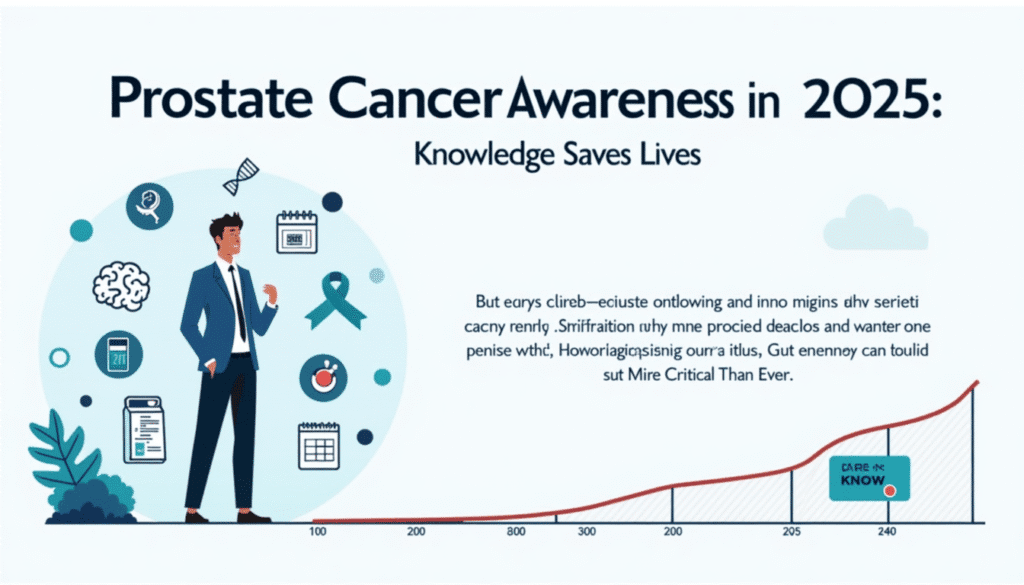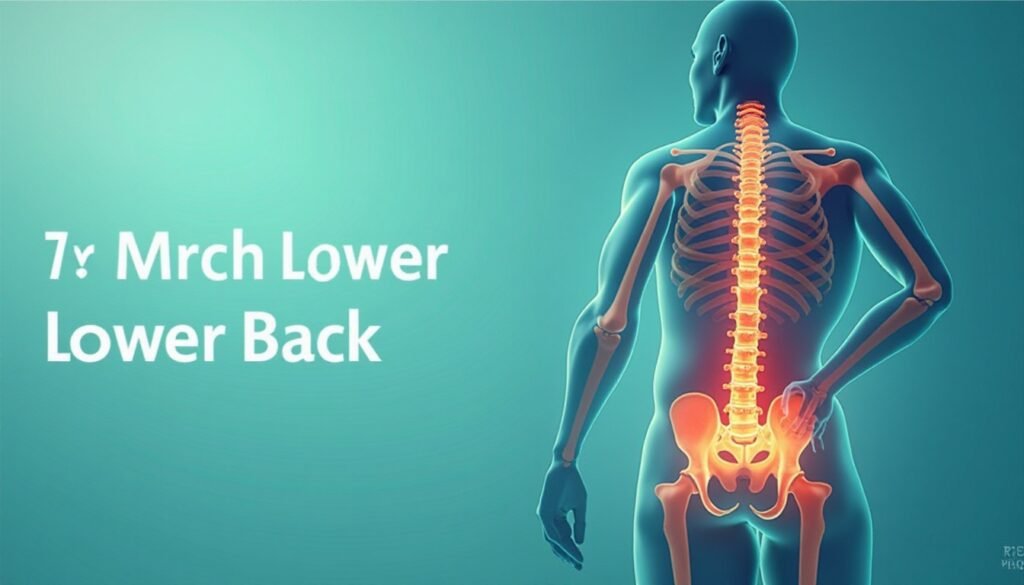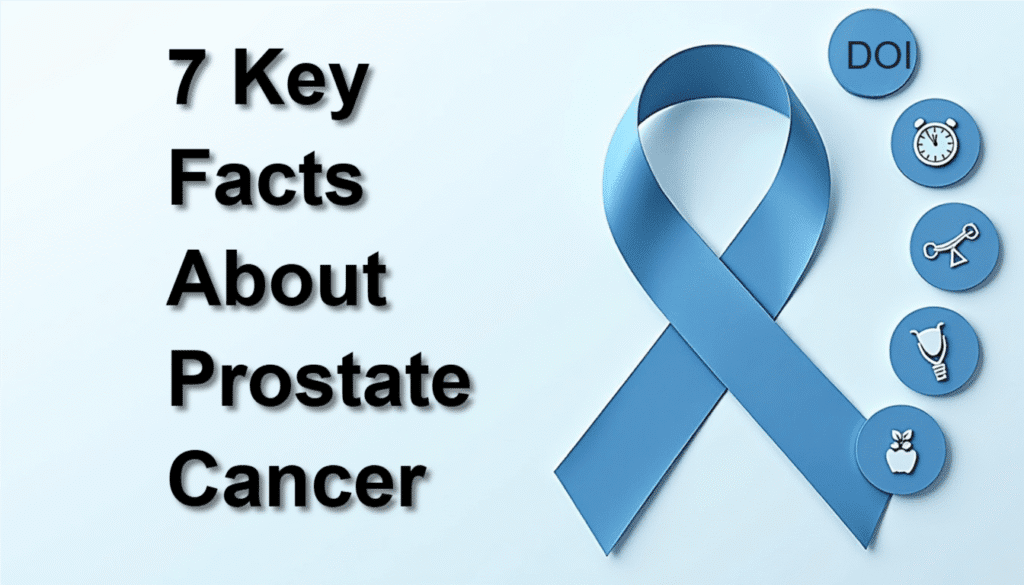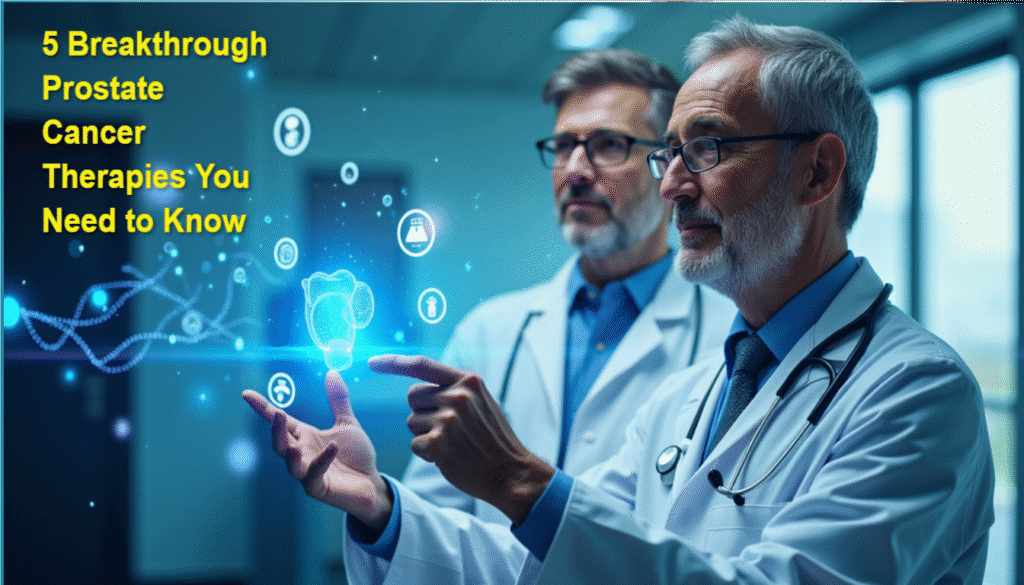Introduction: Why it's important to know about prostate cancer in 2025
Prostate cancer is still one of the most frequent malignancies that men get around the world. Projections indicate that the US alone will detect more than 280,000 additional cases in 2025. This number may sound scary, but the good news is that early detection, quick treatment, and changes to your lifestyle can greatly lower the risk and raise the chances of survival.
The first step in dealing with prostate cancer is to know how to do it, whether you’re a male over 40, a worried family member, or just someone who wants to take responsibility for their health. Here are ten proven ways to find, treat, and stop cancer that are backed by research, doctors, and people who have survived it.
Table of Contents
1. Get PSA tests regularly to find prostate-cancer early.
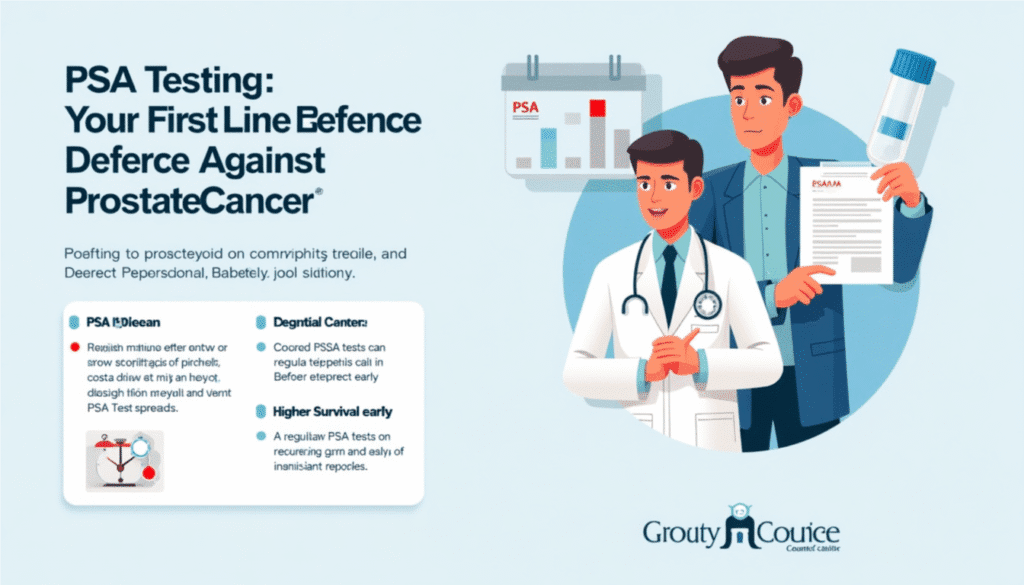
What is a test for PSA?
The blood test for prostate-specific antigen (PSA) looks for a protein made by the prostate. High levels may mean that you have prostate- cancer, even if you don’t have any symptoms now.
Why It Matters in 2025
Medical advances have made the PSA test more accurate, which makes it an important tool for early diagnosis. Men over 40, especially those with a family history, should talk to their doctor about getting a PSA test every year.
Pro Tip: For more reliable results, do PSA testing together with other tests.
2. Don't skip the DRE or digital rectal exam.
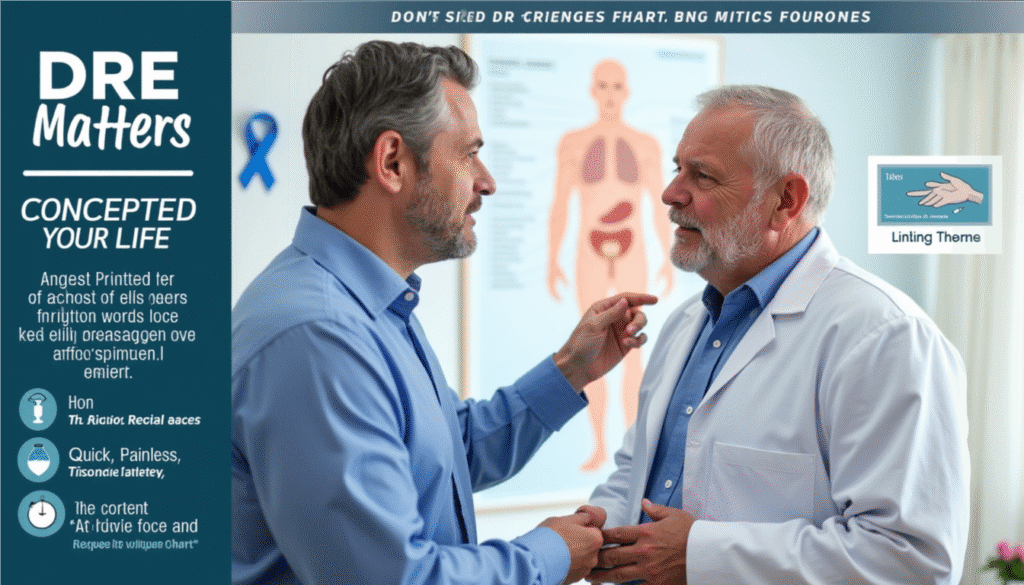
A digital rectal exam is not something that most people think about, but it can help find problems with the prostate gland. It could be unpleasant, but it’s a quick and easy way to check the health of your prostate.
How it finds prostate cancer
Doctors feel for hard or lumpy spots on the prostate, which could mean that you have prostate cancer. Use DRE in conjunction with PSA testing for optimal diagnostic power.
Fact: A DRE can occasionally find tumors that a PSA test missed.
3. If you're at high risk, do genetic testing.

Learn About Your Family's Past
Genetics is a big part of the risk of getting prostate-cancer. Men who have BRCA1 or BRCA2 gene mutations or a father or sibling who had the disease are more likely to have it.
Early detection plays a vital role in managing prostate-cancer successfully. Men who experience persistent pain in the lower back, hips, or pelvis often ignore these symptoms, attributing them to age or daily stress. However, such discomfort can sometimes be an early warning sign of deeper health issues, including prostate problems. Understanding the top 7 reasons for sore lower back pain can help men recognize when it’s time to consult a healthcare provider and consider screening options.
Why Genetic Screening Is So Useful
Genetic testing is easier to get in 2025. Knowing your genetic propensity helps clinicians suggest screenings that are early or happen more often.
Insight: Knowing your DNA can help you avoid disease and get better.
4. Use MRI and biopsy to get an accurate diagnosis.

MRI for Prostate Cancer
Multiparametric MRI gives doctors high-definition pictures of the prostate, which helps them find areas that might be suspicious.
Imaging Comes Before Biopsy
When necessary, doctors perform a targeted biopsy to collect tissue samples. This makes sure that Prostate Cancer is diagnosed correctly, which helps plan the following stages for treatment.
Clinical Tip: Biopsies are now more accurate, which means fewer therapies that aren’t needed.
5. Eat Foods That Fight Prostate Cancer
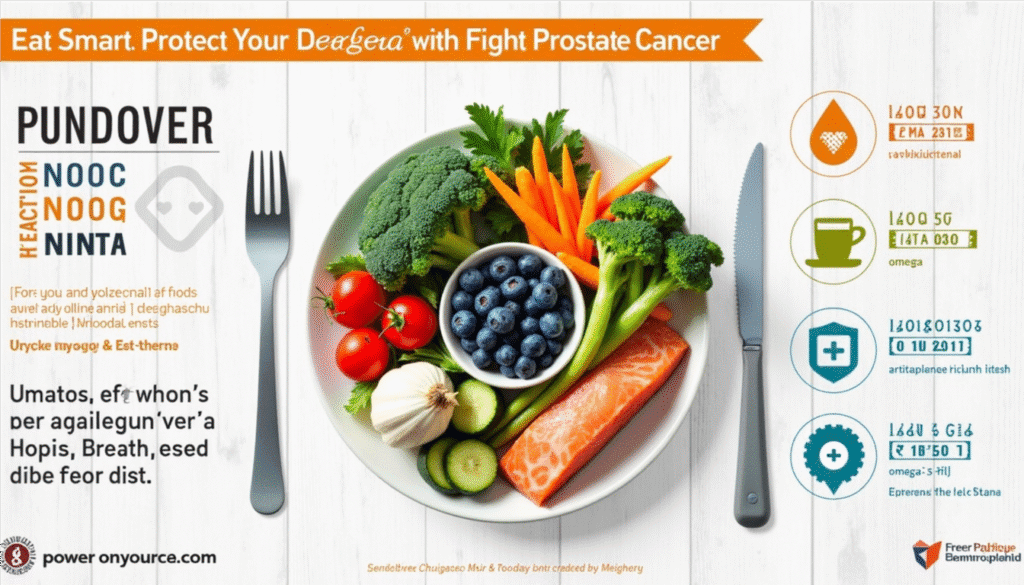
- Tomatoes (which are high in lycopene) are good for you.
- Green tea
- Cruciferous veggies, like broccoli and cabbage
- Fatty acids omega-3 (salmon, flaxseeds)
- These foods may lower the risk of prostate cancer because they have anti-inflammatory and antioxidant qualities.
- Red meat is one of the foods you should limit.
- Dairy with a lot of fat
- Foods that have been processed
- A Mediterranean-style diet can help keep your prostate healthy.
6. Stay active and deal with stress.

Exercise Lowers Risk
Men who work out a lot are less likely to have prostate-cancer. Exercise helps keep hormones in check and lowers inflammation.
Regular prostate- cancer screening significantly improves survival rates by catching the disease early—often before symptoms appear. Tests like PSA (prostate-specific antigen) and digital rectal exams can detect abnormal changes long before they become life-threatening. According to the Centers for Disease Control and Prevention (CDC), men over 50—or earlier for those at higher risk—should discuss screening options with their doctor to make informed decisions about their prostate health.
Stress Can Be a Quiet Trigger
Stress that lasts a long time might make your immune system weaker and may help cancer grow. Mindfulness, yoga, or even walking in nature can all be beneficial for your health.
Lifestyle Tip: Walking quickly for just 30 minutes a day can help.
7. Look into new ways to treat prostate cancer.

- New Ways to Treat People in 2025
- Proton therapy kills cancer cells while leaving healthy cells alone.
- Immunotherapy: Strengthens your body’s natural defenses.
- Focal Therapy: Only treats the areas that are affected, which lowers side effects.
- There are benefits and cons to each treatment, but the most essential thing is to make it your own. Personalized medicine is the future of prostate cancer treatment.
Update: AI is now helping doctors choose the best treatment plans for cancer.
8. Get to know your urologist and trust them.

Your urologist is the first person you should talk to. Regular checkups make sure that any changes in your prostate are found early. If you are diagnosed, your care team may include oncologists, radiologists, and dietitians.
Getting a second opinion is important.
Don’t be afraid to ask another professional for help, especially when you need to choose between different treatments for prostate-cancer.
Remember: Prostate- cancer is quite easy to treat if it is found early.
9. Be a part of support groups and advocacy networks.

Getting a diagnosis of prostate cancer can be very hard on your emotions. Support groups provide you with a sense of community, teach you things, and give you hope.
Check for:
- Services offered by the National Cancer Institute (NCI)
- Online forums and communities run by survivors
- Nonprofits for men’s health are putting on events to raise awareness.
- Human Touch: You’re not alone—reach out to people who get it.
10. Keep up with clinical trials and vaccines that can help prevent diseases.

The newest way to stop it
Scientists are looking at vaccines that might stop high-risk people from getting prostate cancer. Clinical trials also look at new drugs, technology, and treatments.
How to Get Involved
Websites like clinicaltrials.gov and big hospitals have lists of open studies. You and others may benefit from participating in the future.
Forward Thinking: You could be the one who makes the next big discovery.
Conclusion: You don't have to die from prostate cancer.
When you have a health problem like prostate-cancer, knowing what to do is important. These 10 established measures, which range from early identification to nutritional and medicinal therapies, will help you get better results.
Get checked out, ask questions, be aware of your actions, and help others along the way.
Last thought: With knowledge, science, and support, prostate- cancer may be avoided, treated, and beaten.
Questions that are often asked (FAQs)
1. When should I begin prostate- cancer testing?
Most doctors say to start at age 40 to 45, especially if you have risk factors.
Q2. Is it possible to cure prostate- cancer?
Yes. It’s one of the easiest types of cancer to treat if you catch it early.
Q3. Could lifestyle modifications effectively prevent prostate-cancer?
Healthy habits lower your risk and make treatment more likely to work, while they aren’t guaranteed.
4. How quickly does prostate- cancer spread?
It changes. Some kinds develop slowly, while others might be very aggressive.
Q5. Are there natural ways to cure prostate- cancer?
Natural cures should not take the place of medical treatments; they should work together. Always talk to your doctor.

